Salzburg Sightseeing near Salzburg
With these Salzburg insider tips you make your city trip Salzburg an experience that not everyone has. The city of Mozart on the Salzach tells stories. These are varied. Exciting. Entertaining. Exciting. Relaxing. Fascinating. Interesting. I could continue the list indefinitely. But Salzburg can actually be described in a short sentence. There is everyone Austria Visit something new to discover. The Salzburg country is worth many trips.
Reserve Your rental car here *
We know this from our own experience, because it always draws us back to the city on the northern edge of the Alps. Every time we discover something surprising. It was the same with this trip. This time we explored this:
-
The Salzburg Living History Museum
When you go on a city trip to Salzburg, you probably don't immediately think about taking a look at the Salzburg area. But this is one of our Salzburg insider tips. After our visit to the Loferer Steinbergen In the spring we want to find out more about the region. We therefore take half a day to visit the Salzburg Open Air Museum. The signs on the highway had made us curious about it for a long time. The open-air museum in Großgmain near Salzburg provides an insight into the life of mountain farmers on a walk through the museum grounds.
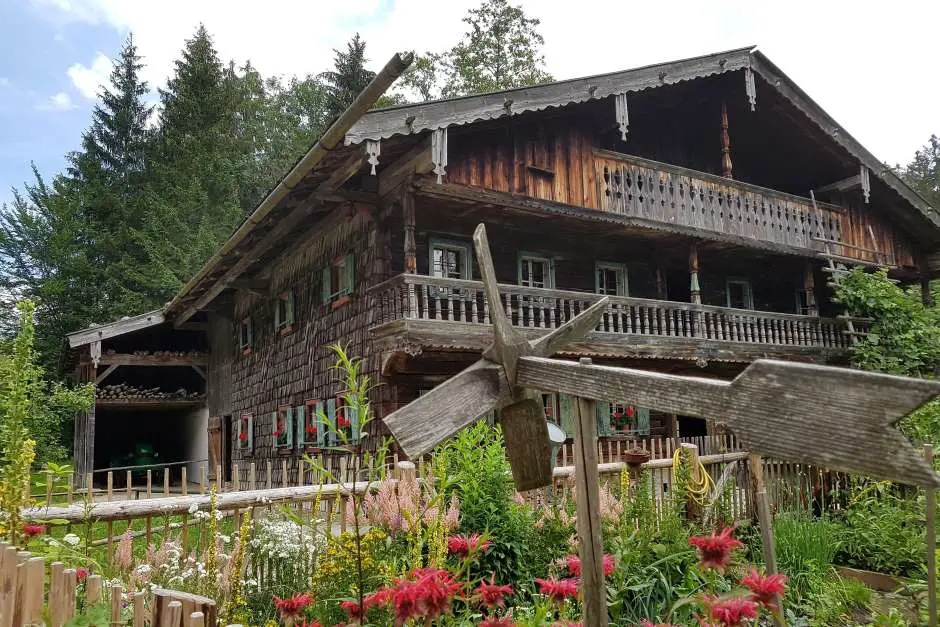
In addition to farms from the 16th - 19th centuries, there is also a mill, a barn with artistic fretwork, a smokehouse, a blacksmith's house and even a brewery. At the Dorfkramer you can buy sweets as well as candy canes. It was only decades ago that these also existed in Salzburg. We then take a break in the Salettl snack. The “Cut Farmer's Wife” that is on the snack menu makes me curious. I have not yet come across this during our visits to taverns and inns in Austria. It turns out that it is a sliced sausage with lettuce. Definitely a name that encourages you to buy.
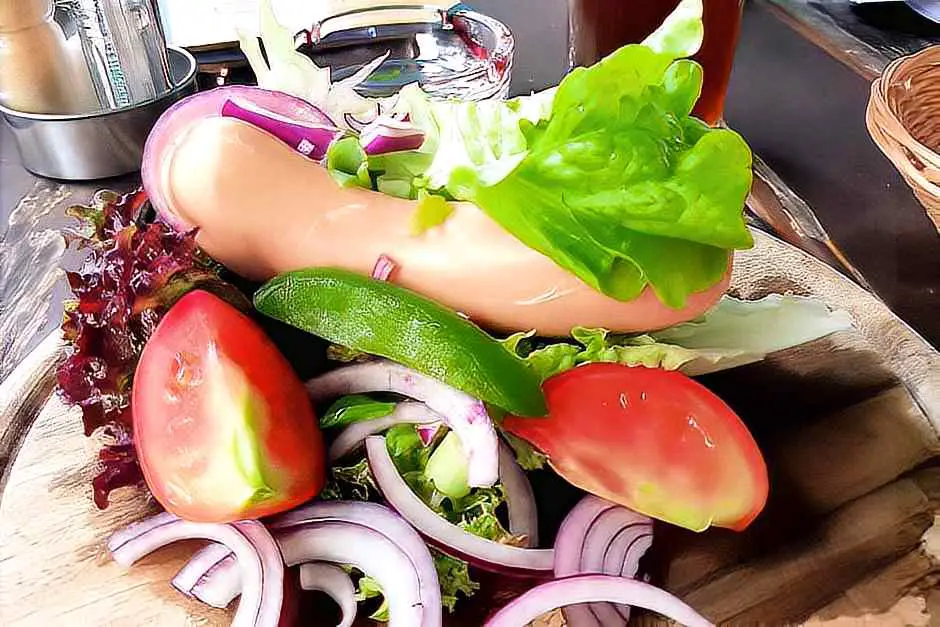
You can walk through villages that show the architectural styles of the valleys in the Salzburger Land. So you hike from Flachgau in the Tennengau. Continue up to the Pongau and the Lungau, before you go over the Pinzgau back to the entrance (Map). We spend a whole afternoon for the museum. On the way, the small museum railway crosses our way again and again. Your friendly platoon driver gets to know us very well on this day because we film him and his train from different perspectives. He waves us laughing from his driver's cab each time. Like some of his passengers. In Pongauer village we finally get on the train and drive back to the entrance. The museum is so sprawling that we have to cancel the visit to Lungau and Pinzgau village for another visit if we want to reach the exit before the museum closes.
Salzburg Open Air Museum
Hasenweg 1
5084 Großgmain
Austria
The museum is open from mid-March to early November and from Dec. 26.12th - Jan 6.1th. The current opening times and prices can be found on the museum's website via the link provided.
Handy for the hike
- You can also go hiking in and around the Salzburg Open Air Museum. We definitely recommend comfortable walking shoes for the hike.
- It is also practical for on the go backpackin which you drink, snack, a Jacket as well as small items. One lunch box as well as other practical utensils for hiking are available here.
- With these, for example, you are well equipped for hikes in the Salzburg area Hiking maps *. If you are planning more hikes in the area, you can find them here Hiking guide *.
- Do you have everything? With our hiking checklist you can easily check that.
- You can find practical accessories for hikers here
- A city walk that not everyone knows is this Tour through Salzburg's underworld through the Almkanal. You can find details on this in the “Schönste Zeit Magazin”.
If you purchase via a link marked *, we receive a commission, which we use to run this blog.
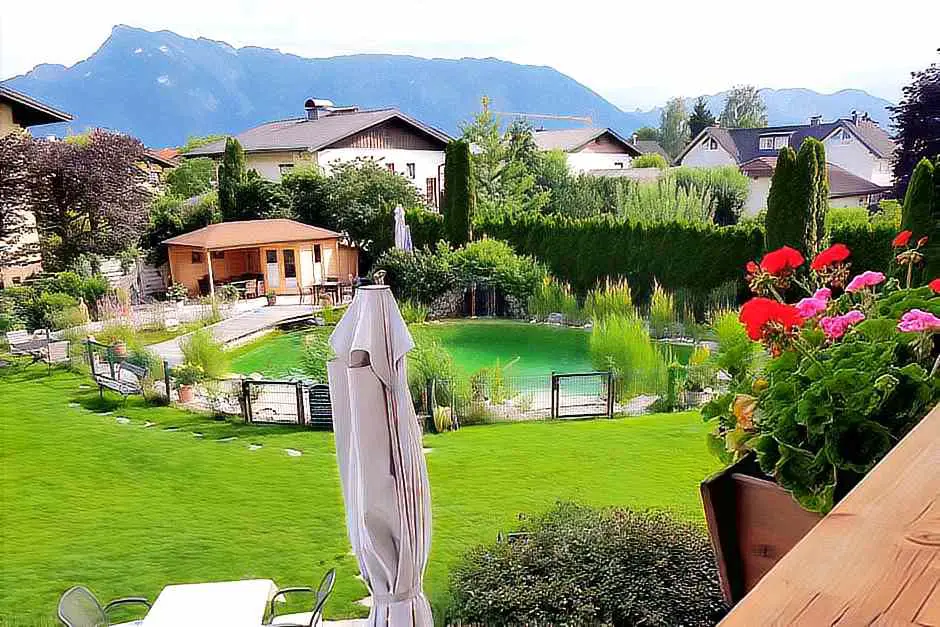
-
Sleep at the Hotel Himmelreich in Wals
This time we stay overnight in Wals, which is conveniently located for a visit to the open-air museum, but also for a visit to downtown Salzburg the next day. The Hotel Himmelreich in Wals* is perfect for that. With its friendly rooms, well-kept garden and views of the mountains around Salzburg, it offers cozy accommodation. The hosts are available to provide advice and travel tips for Salzburg and the surrounding area.
The best thing, however, is the breakfast. I have rarely seen such a wide selection of dishes on a breakfast buffet. The rolls come fresh from the bakery and taste delicious. There are also homemade jams and spreads. The sausage and ham selection is good. There are also home-baked cakes and other surprises that we have rarely discovered at breakfast buffets. Although the hotel is not far from the airport, the aircraft noise doesn't bother us. Hangar 7 is less than 2 km from the hotel. The outlet center is also just a few steps away on foot.
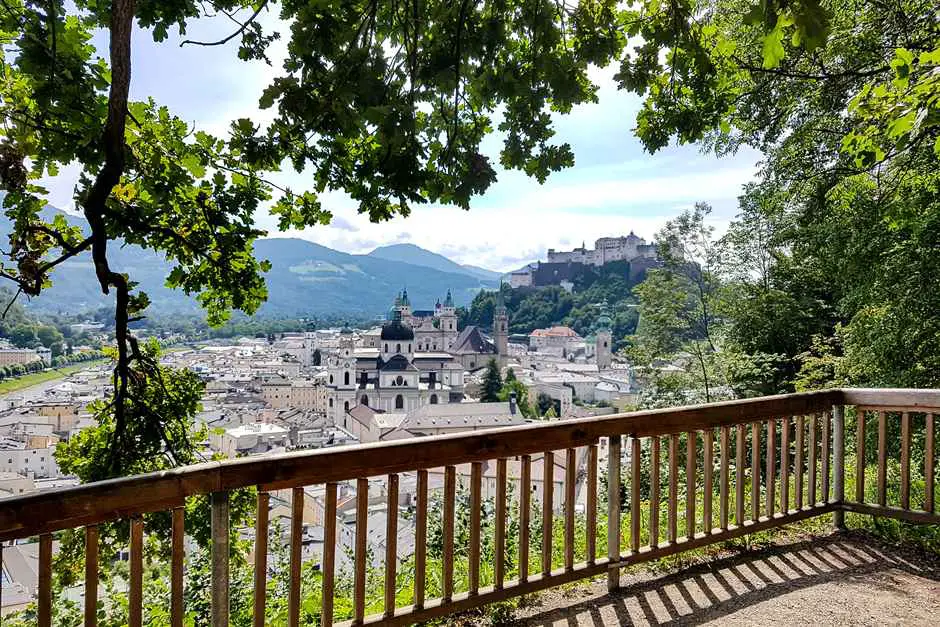
-
A Salzburg Lookout not to be missed
We use our Salzburg Card and travel for free with the Elevator on the Mönchsberg, Above is the worth seeing Museum of ModernityHowever, this is not our goal on this hot summer day. It's just too hot that day. We prefer to sit in the Restaurant M32 with its panoramic terrace, With a carafe of homemade lemonade we enjoy the magnificent view of the old town of Salzburg, the Salzach and the fortress Hohensalzburg. From here you can get a good overview of the city. It is easy to see how many churches Salzburg's old town has. Therefore, we are already looking for our way to the cathedral square from our viewing point, where we have an interview appointment in the afternoon with a specialist for Dirndl.
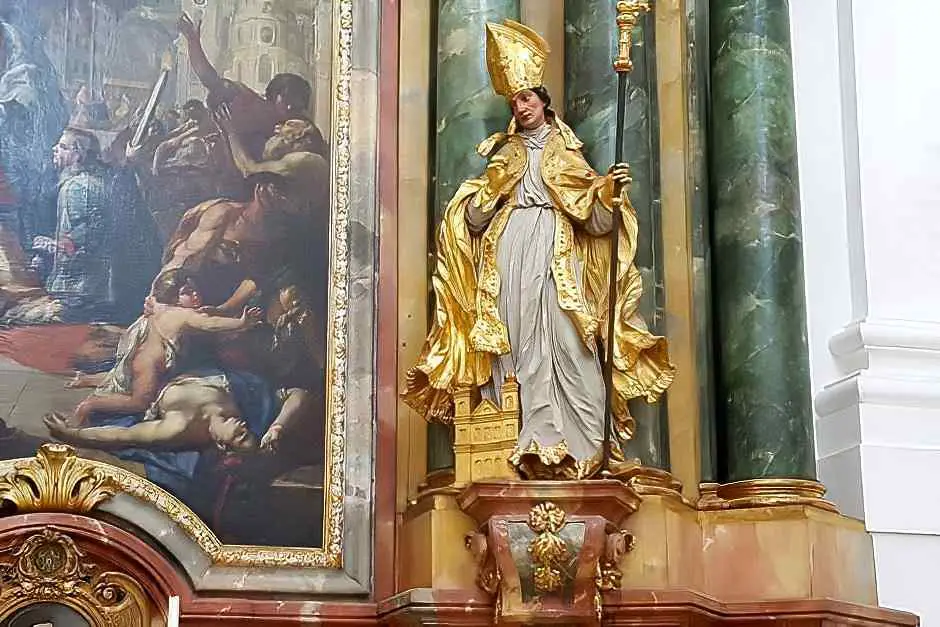
-
Salzburg's Churches - Salzburg Tips for hot Summer Days
After enjoying the view, we take the lift down from the Mönchsberg. Instead of walking through the crowded Getreidegasse, we choose the quieter way via university square and its farmers market. This time the Austrian specialties don't tempt us, but the Kollegienkirche does. Snow white, she is not to be missed. We take our time to cool off in the church from the heat of this summer's day and continue on to the Franciscan Church.
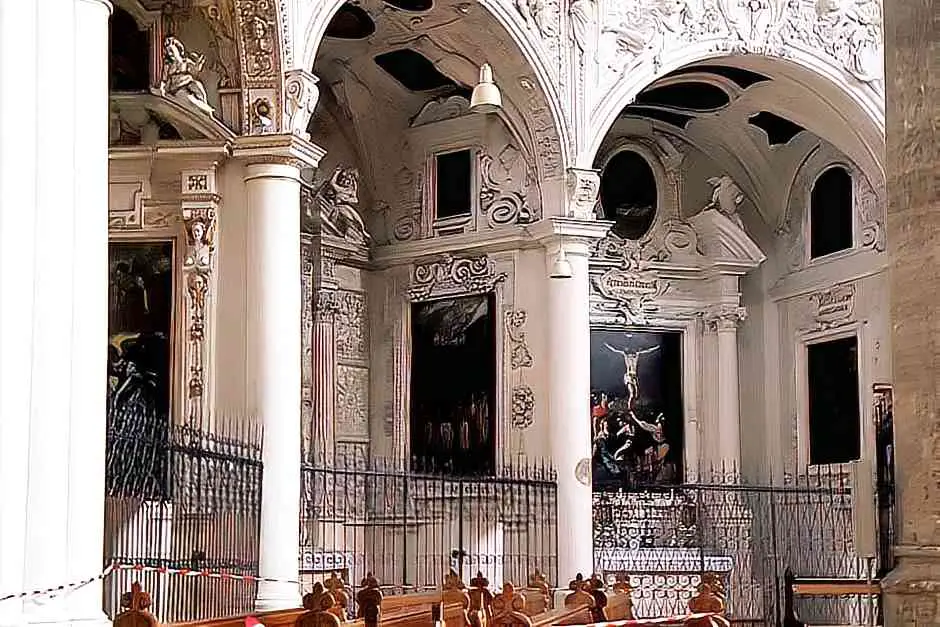
The Franciscan Church again lures us into the cool church interior. The baroque high altar and its side altars fit harmoniously into the Gothic choir. We are lucky and see the church without any scaffolding. The tower of the Franziskanerkirche is shrouded since August 2018 because of renovation work. Only a few steps further we stand on Cathedral Square, on which the stages for the performances of Jedermann are built. This play is shown from the end of July to the end of August every year. The Residenzplatz is just around the corner, where Fiakers (horsedrawn coaches) wait for customers.
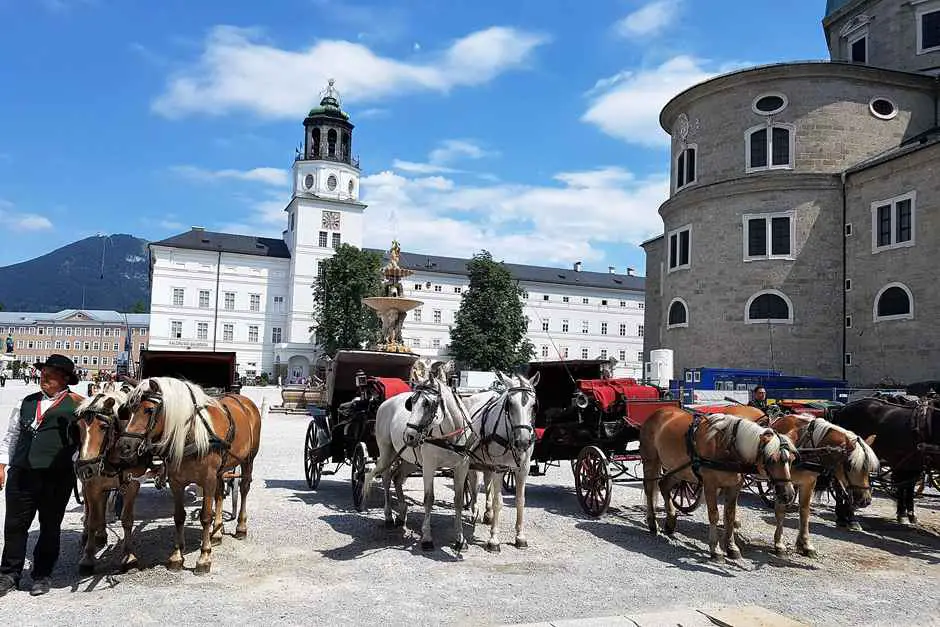
-
Fancy a Dirndl?
A special one of our Salzburg insider tips. We have long wanted to find out how dirndls actually came about. This is the reason why we meet with Hans Köhl from the Salzburg Heimatwerk. He has written a book about it and, as managing director of the Salzburg Heimatwerk, is very familiar with the subject. In the Middle Ages, dress codes determined who had to wear which robe or which “costume”. That was exactly what was prescribed. The appearance of a person should already show what status they belonged to.
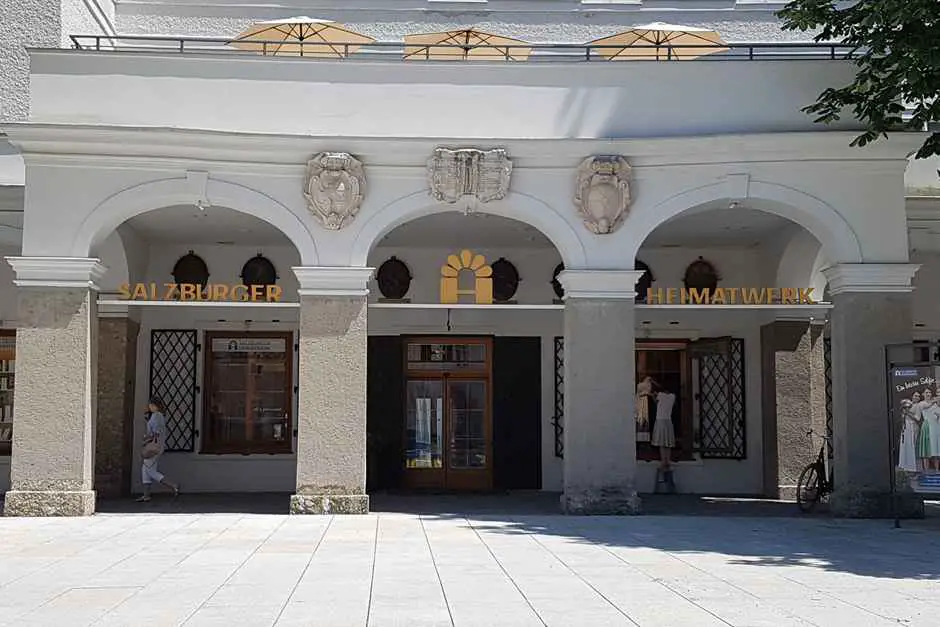
How Bloomers turn into Leather Pants
The term "fashion" only appears in modern times. There are trends in the European rulers. There it always happens that worn clothes are distributed to servants or the poor. These mimick these clothes over time with simpler materials and shapes. In this way, the men's trousers with their inflated legs become the comfortable Gsass trousers of the men in the country. Around 1800 these developed into fashionable lederhosen. Suede trousers, which the noble society wore for hunting in the 18th century, become knee-breeches in the Alpine region.
From the Costume to the Dirndl
In the courtly ladies' world, fashions alternate. Around 1800, the Hofschneider's models were inspired by rural clothing and created the “shepherd's fashion à la tyrolienne”. In the first half of the 19th century, the old dress codes fell victim to the Enlightenment period. Freedom, equality and fraternity also play an increasingly important role in fashion. A new clothing code is emerging across Europe.
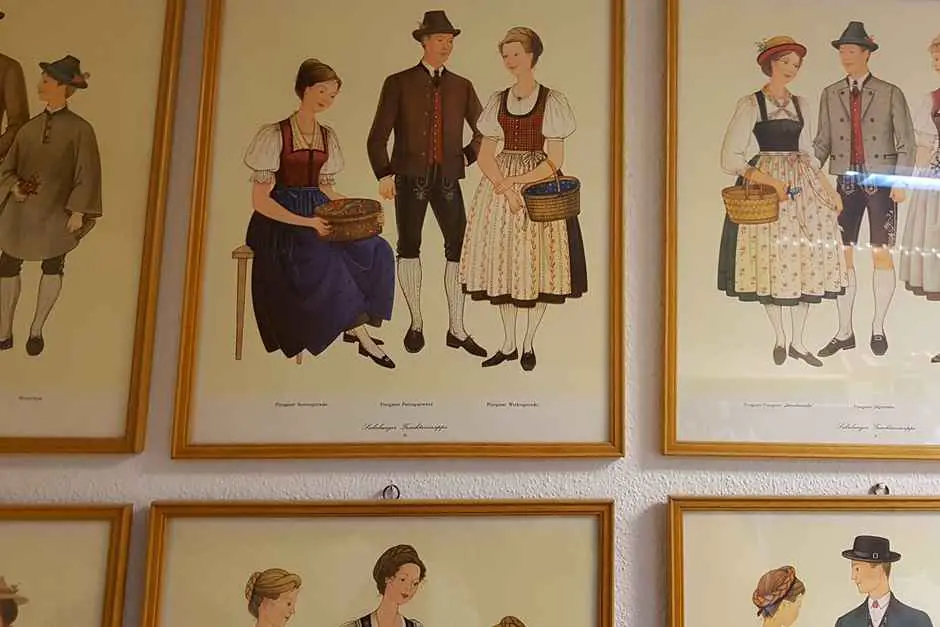
The wearers of the clothes no longer differ according to social status. Differences by city and country, by fashion and the new understanding of traditional clothes are much more important. Cotton dresses with printed floral patterns and club sleeves are popular. The traditional “traditional costume” becomes folk and regional costumes. In the mid-19th century, townspeople liked to decorate themselves with rural clothing. The “Dirndl” is entering urban fashion. In rural areas, on the other hand, the rural population likes to adopt the fashion that comes from the cities.
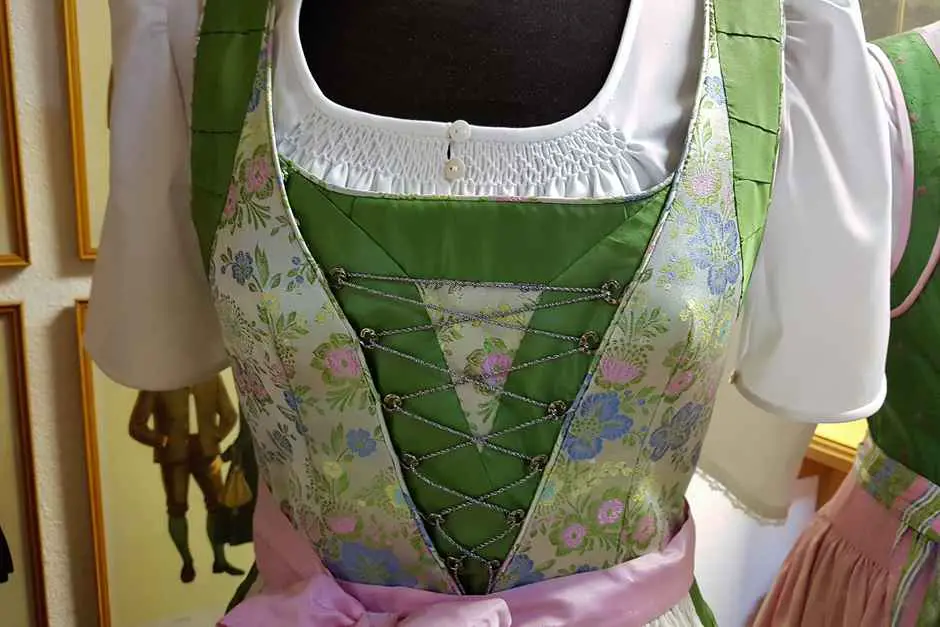
Regional Costumes emerge
Regional costumes only emerge in the 20th century. In the second half of the 19th century social and economic contexts in society change. Industrial workers eke out their lives in backyards. Farmers lead a poor life in the countryside. Societies of traditional costume compete for the preservation of the Alpine costumes. Dirndls and lederhosen are intended to provide economic incentives to the uprooted urbanites and the poor rural population. Regional costumes play a role only after the First and Second World War. They should convey a sense of home. On the other hand, it is considered chic to show oneself in dirndls among the rich and famous .
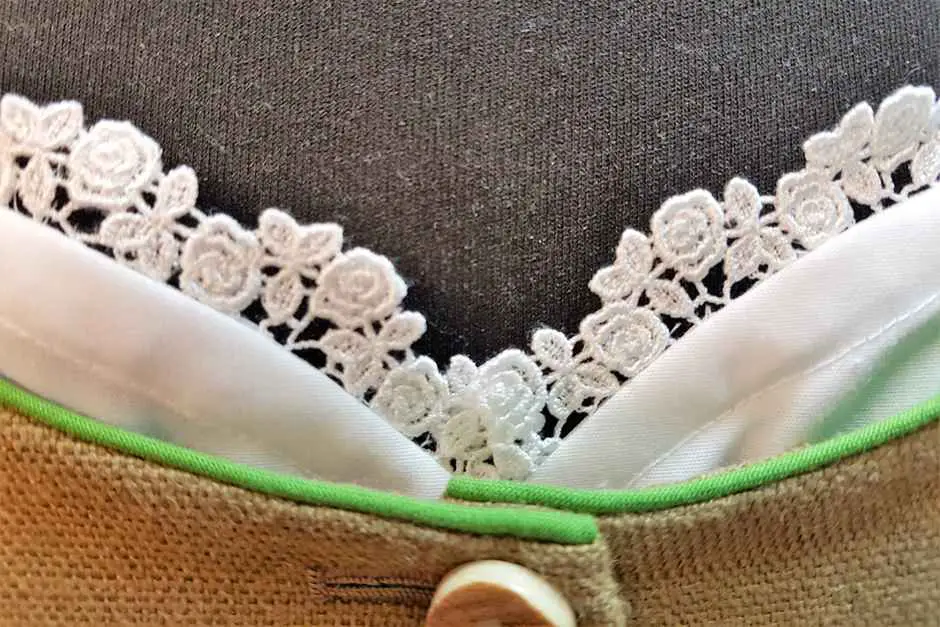
Under the National Socialist rule, one wants to counteract this double-tracked development. Costume becomes an exclusion symbol between real and unreal. This goes so far as to prohibit Jews from wearing national costumes. At the same time, Baron von Trapp with his family , who is a supporter of the emperor, spreads the image of a yodeling Salzburg population wearing Dirndls in America. In the 1950s, a post-war costume boom sets in with a more liberal orientation. Dirndl fashions come and go in the coming decades. The 50's Austrian look is followed by the mini wave of the 60s. In the 70s people like to wear peasant skirts. Country fashion is popular in the 90s. Currently, the dirndl is combined with cheap imitations from the Far East in often adventurous fashion. Let's hope that quality will regain importance soon.
Salzburg Insider Tips - Are you also interested in Salzburg Dirndl? Then check it out in the
Salzburg Heimatwerk
Residenzplatz 9
5010 Salzburg
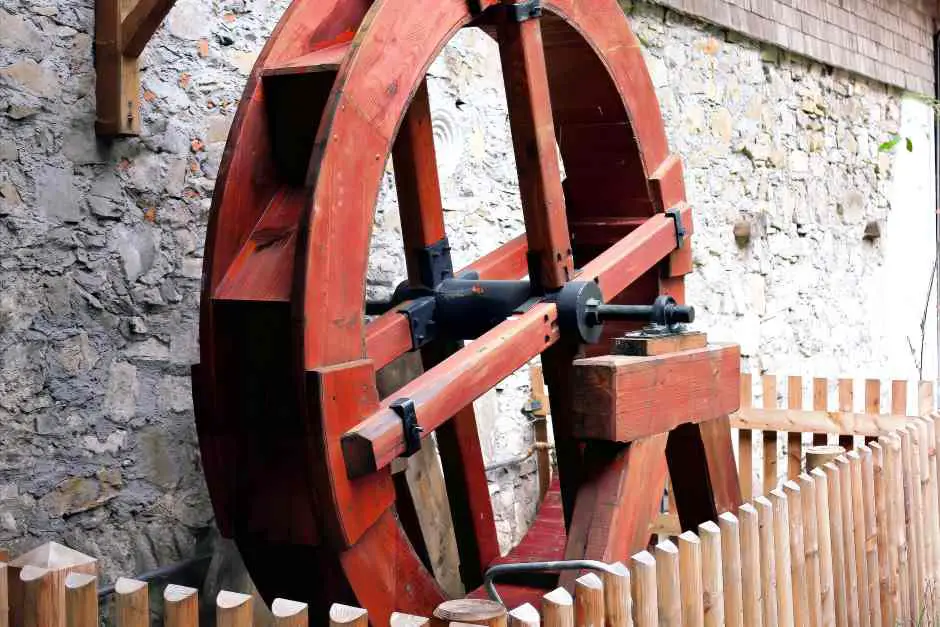
-
Insider tips and lesser-known sights in Salzburg
Salzburg is known for its magnificent old town and the Hohensalzburg Fortress. But off the beaten track there are places that are new and exciting even for experienced visitors to Salzburg.
The old forge near Anthering
You can find it just a few kilometers outside of Salzburg, in Anthering the old blacksmith shop. This place is a real piece of craft history. Here you can experience how blacksmithing is traditionally practiced. The forge is not just a museum, but an active workshop. You can look over the blacksmith's shoulder as he transforms iron into artistic shapes. It is fascinating to see how small works of art are created with fire, anvil and hammer. You can also spend the night there in a quiet location in the middle of the forest Naturidyll Hotel Hammerschmiede*.
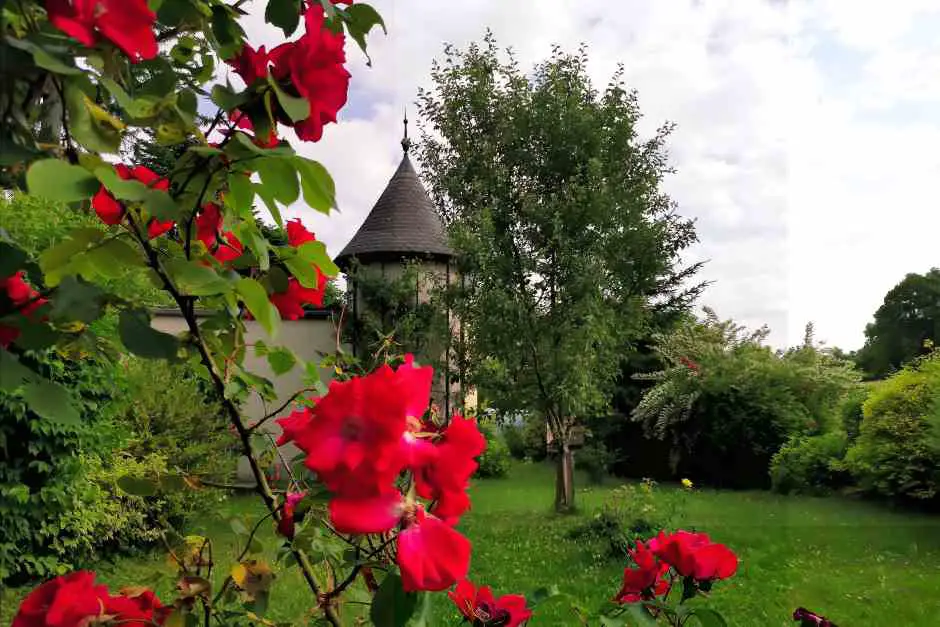
The Pallottine Palace in Salzburg
Located in the middle of Salzburg, hidden on the Mönchsberg the Pallottine Palace. This small castle offers an oasis of peace. Here you can escape the hustle and bustle of the city and relax in a spiritual atmosphere. The Schlössl is surrounded by forests and meadows and offers a wonderful view over Salzburg. It is an ideal place for a break to recharge your batteries. The Schlössl is also a good starting point for hiking enthusiasts to explore the Mönchsberg. This works best if you... Pallottine guesthouse on Mönchsberg* stay overnight.
More suggestions
I recommend this for culture lovers Literaturhaus Salzburg. There are regular readings and exhibitions here. It is a meeting place for everyone interested in literature and culture.
You can find more Salzburg Tips here:
- Salzburg specialties that (not) everyone knows
- Do you like to go on a shopping spree? Then have a look at these traditional Salzburg shops .
- Have you heard a lot about the Trapp family, but want to know more about them? Here you can find out, for example the true story of the legendary Salzburg family.
- Do you like Austrian coffee? then you should know this.
- Want to know where to eat well in Salzburg? Here we recommend restaurants.
- Are you in Salzburg at Christmas time? These Christmas markets you definitely can't miss it.
- Krampus run in Gnigl near Salzburg
- Find all our Salzburg tips here.
Conclusion: Salzburg tips for your visit near Salzburg and in town
A visit to these Salzburg insider tips can be so varied. This time we combined wildly. A museum at the gates of the city, a viewing mountain, a walk to the churches in the city center and an insight into the Salzburg world of traditional costumes. Maybe there are also suggestions for your city trip to Salzburg?
Travel Arrangements:
Parking at the airport
Here you can reserve your parking space at the airport.
Arrival by plane, train and long-distance bus to our Salzburg Insider Tips
For example, book yours here Arrival by plane, bus or train*. Lufthansa, Austrian Airlines and other airlines fly to Salzburg. It is also possible to travel to Salzburg by train.
Rental car for the Salzburg Insider Tips:
Cheap Car Hire - Book Fast and Easy! *
Accommodation near the Salzburg Insider Tips
Book yours Accommodation in Salzburg * here.
With our partner booking.com, for example, you can easily book hotels and accommodations near our Salzburg Insider Tips online.
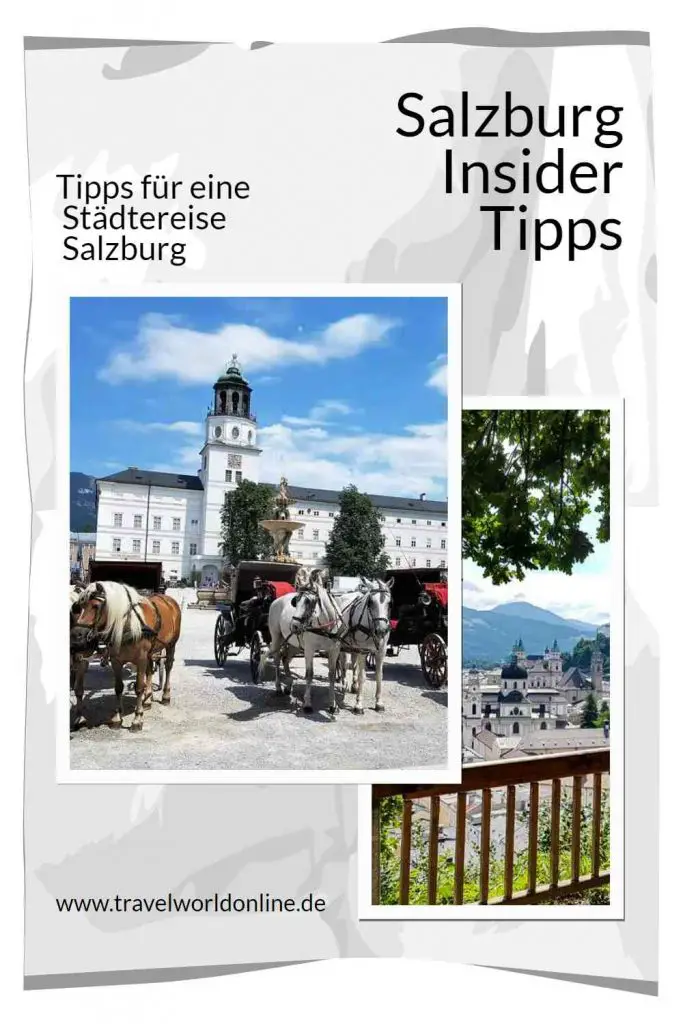
Do you know this?
- Salzburg and Surroundings
- Grossglockner High Alpine Road
- Vienna travel tips
- Vienna Insider Tips for Vienna off the beaten track
- Lilienfeld Abbey - Abbey library, monastery and gallery
- Texel Tips for connoisseurs
- New York insider tips
- Museum Lübbenau - a tour
- Which rain jacket is the best?
- How did the farmers once live in Franconia
- Miami Beach insider tips for slow travelers and connoisseurs
- Finance Holiday - Travel Blogger Tips
Other Slow Travel Recommendations You can also find it here. More Salzburg Tips off the beaten paths you can also find here.
Source Salzburg Insider Tips: own research on site. We would therefore like to thank Salzburg Tourism for the kind invitation to this trip. The article also contains Affiliate Links. However, our opinion remains our own.
Text: © Copyright Monika Fuchs and TravelWorldOnline
Photos: © Copyright Monika Fuchs and TravelWorldOnline
Video: © Copyright Petar Fuchs and TravelWorldOnline
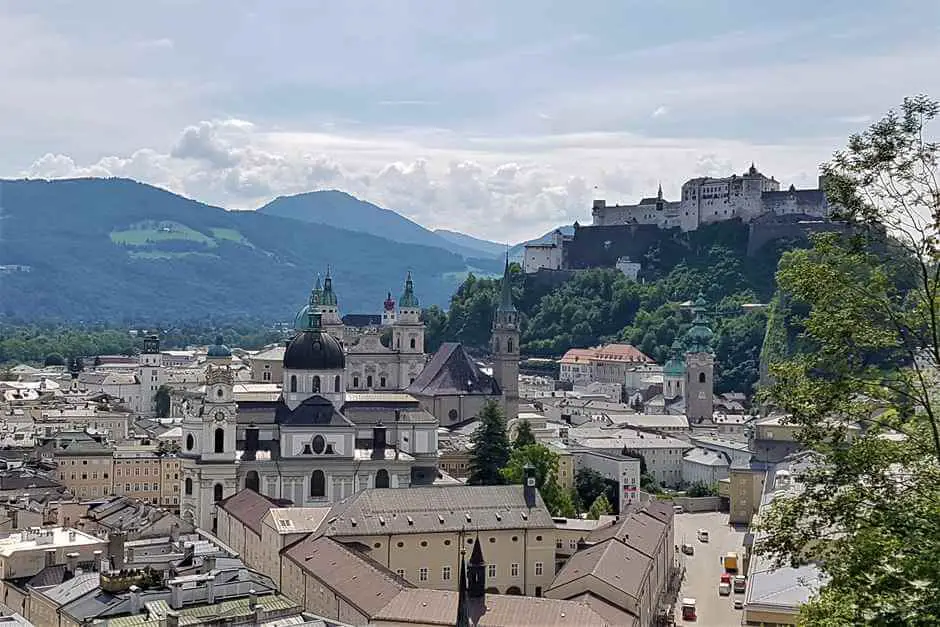
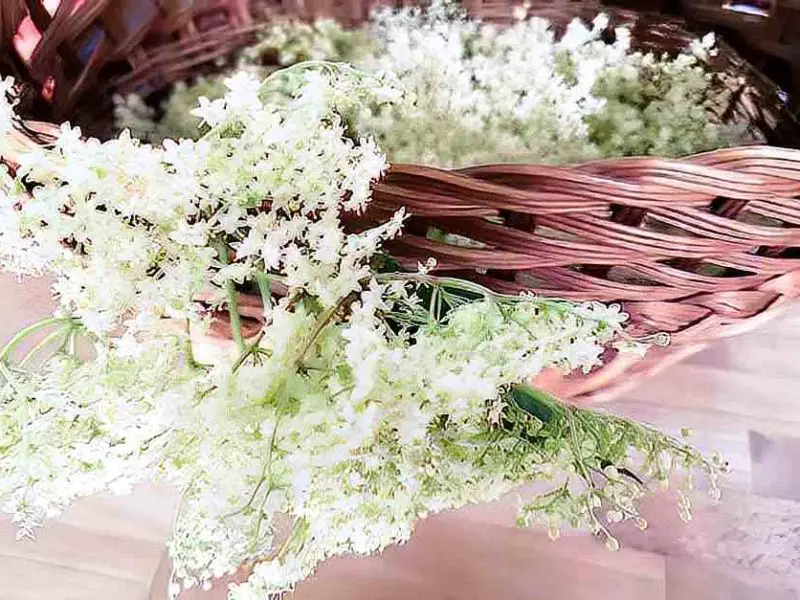
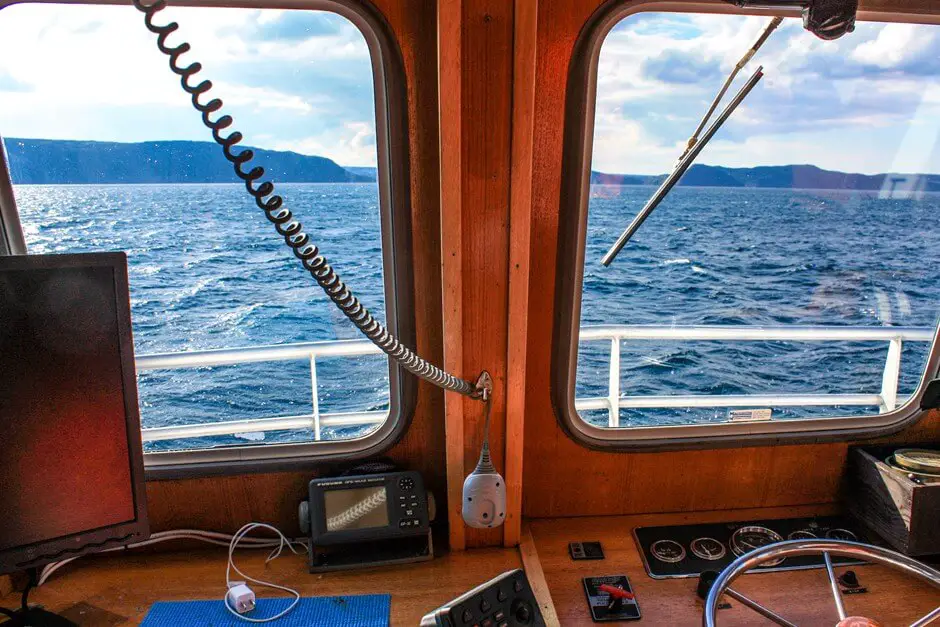
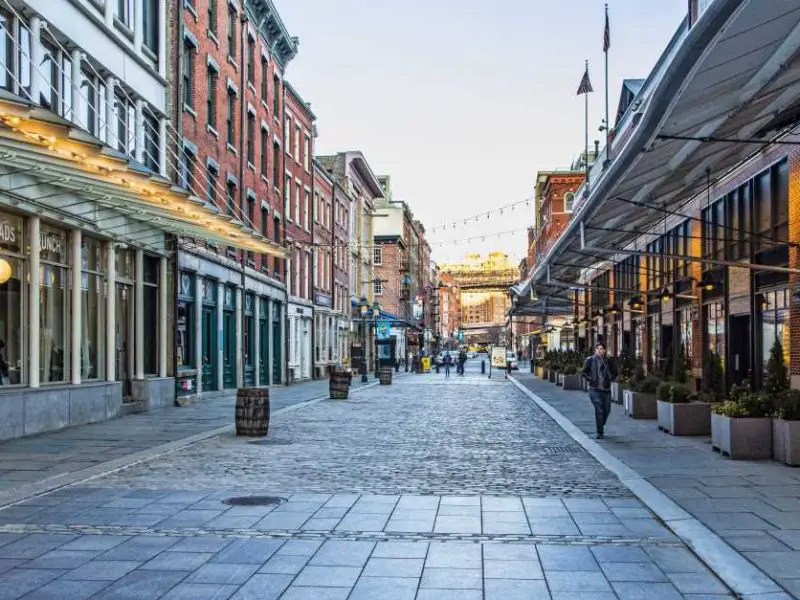
The article shows again that you do not have to drive far to have it nice.
Thanks for the impressions!
Hi Carsten,
We agree with you. Also in our area there are beautiful places that are worth a visit. Thanks for the nice comment.